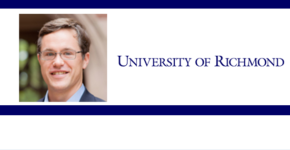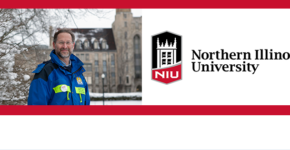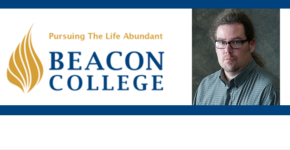Tag: history
-

Chris Austin, Louisiana State University – DNA from Museum Specimens
Can you extract DNA from museum specimens? Christopher Austin,associate professor in the Department of Biological Sciences and head curator of amphibians and reptiles in Museum of Natural Science at Louisiana State University, explores a new way to gather information on the past. I completed my undergraduate degree at the University of California at Davis and…
-

Kishwar Rizvi, Yale University – Iran and Global Exchange in the Early Modern Period
What if art was seen as a more important part of our culture? Kishwar Rizvi, associate professor in the history of art at Yale University, delves into when art was seen as an important commodity among kings and queens. Kishwar Rizvi is Associate Professor of Islamic Art and Architecture at Yale University. She is…
-

David Courtwright, University of North Florida – Opioid Crisis
We’re in the middle of an opioid crisis. David Courtwright, professor of history at the University of North Florida, discusses an earlier epidemic and what we can learn from it. David Courtwright, Presidential Professor in the University of North Florida History Department, is best known for his histories of drug use and drug policy in…
-

Ruth Thompson-Miller, University of Dayton – Jim Crow’s Lasting Impact
The lasting impacts of Jim Crow can’t always be seen with our eyes. Ruth Thompson-Miller, assistant professor of sociology at the University of Dayton, discusses how some scars are carried on the inside. Ruth Thompson-Miller is assistant professor of sociology at the University of Dayton. She is an author of Jim Crow’s Legacy: The Lasting…
-

Christopher von Rueden, University of Richmond – Why Men Care About Status
Was status always important to men? Christopher von Rueden, assistant professor of leadership studies at the University of Richmond, details whether hunter-gatherers also cared as much as modern men about their status among the tribe. Dr. Christopher von Rueden looks at leadership through the lens of anthropology. An anthropologist with expertise in small-scale societies, his…
-

Mark Molesky, Seton Hall University – Gulf of Fire
We hear about The Next Big Earthquake, but what about the one that already happened? Mark Molesky, associate professor in the department of history at Seton Hall University, delves into a tremor of the past. I study a wide range of subjects in modern and early modern European history, with a particular emphasis on intellectual…
-

Reed Scherer, Northern Illinois University – Fossils and Rising Sea Levels
Ice sheets are vulnerable to melting in a warming world. Reed Scherer, professor of geology at Northern Illinois University, takes a look back in history to help predict the future. As a youngster in Brooklyn, N.Y., Reed Scherer loved the ocean and the diversity of its creatures. By age 7, he had started collecting fossils,…
-

Andrew Wood, San Jose State University – Twilight of the Roadside Motel
We’re losing part of our history. Andrew Wood, professor of communication studies at San Jose State University, details a small part of Americana that’s becoming a thing of the past. Dr. Wood has authored or co-authored books on internet communication, reality television, roadside Americana, and the 1939-40 New York World’s Fair. His 2009 book City…
-

William Nesbitt, Beacon College – The Beats
Are The Beats still relevant today? William Nesbitt, English professor at Beacon College, explores this literary movement and what we’re still learning from them today. Dr. William C. Nesbitt is an English professor at Beacon College in Leesburg, Florida, where he heads up Beacon’s Humanities Department. He received his Ph.D. in English from Florida State…
-

Adam Blackler, Black Hills State University – Germany, Genocide and Namibia
There is still one genocide Germany has not taken responsibility for. Adam Blackler, assistant professor of history at Black Hills State University, says Germany’s actions in Africa need to be recognized too. Adam A. Blackler is an Assistant Professor of History at Black Hills State University. His research explores how colonial encounters in Southwest Africa…
